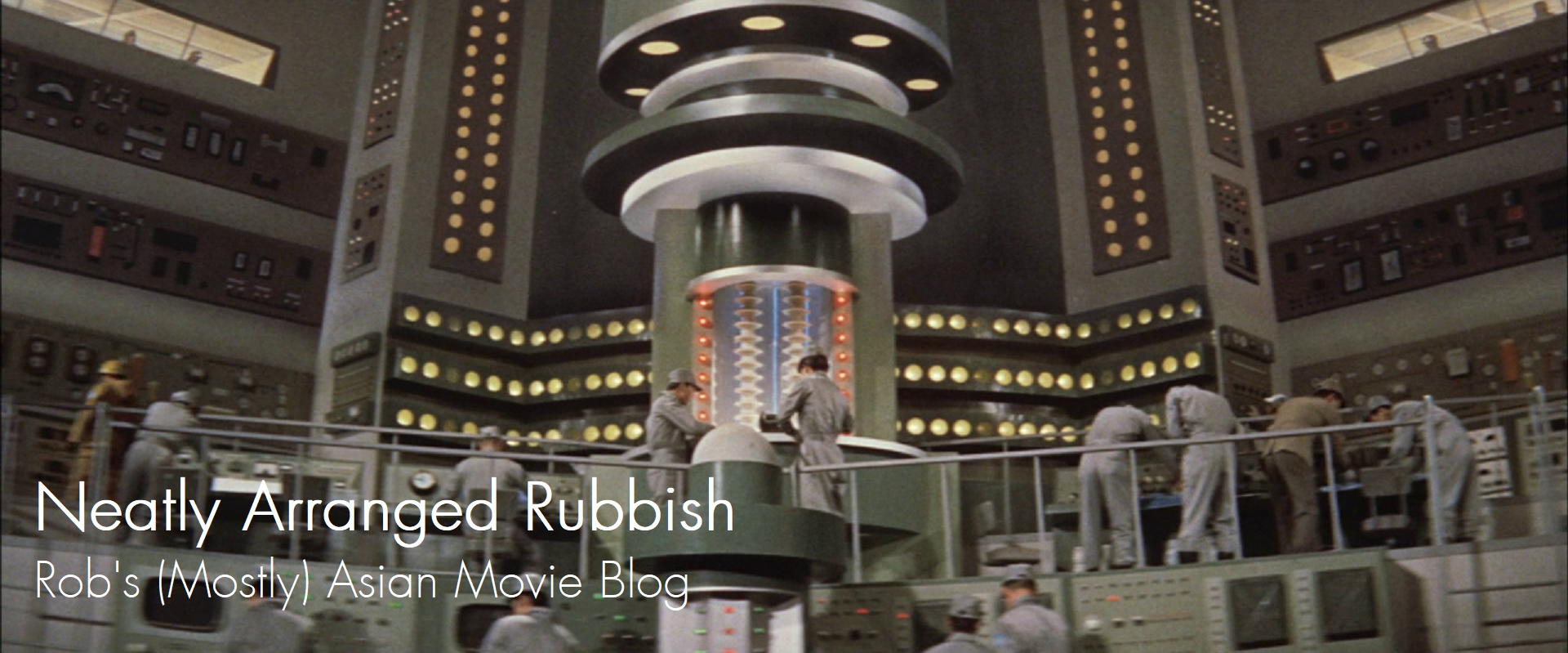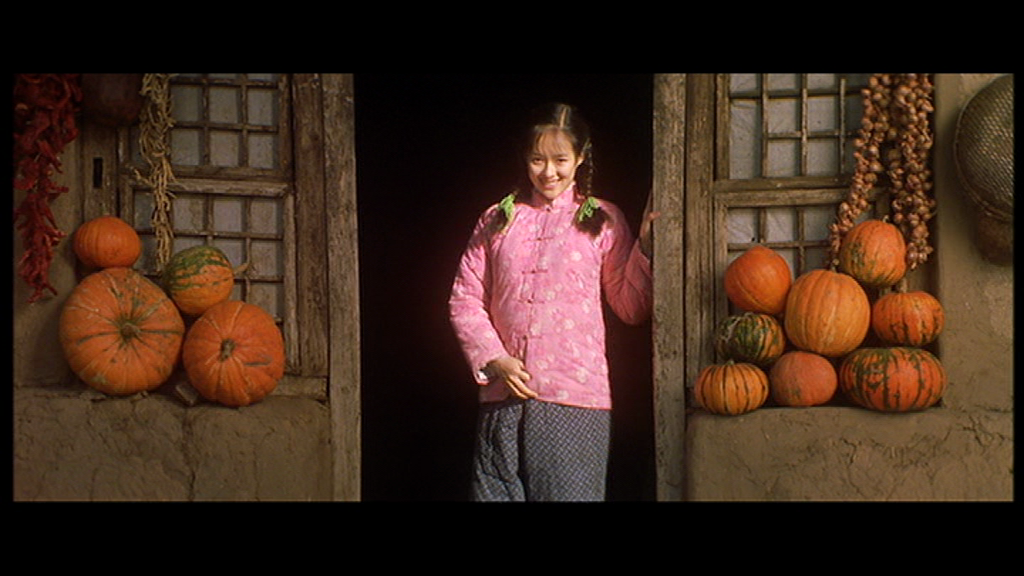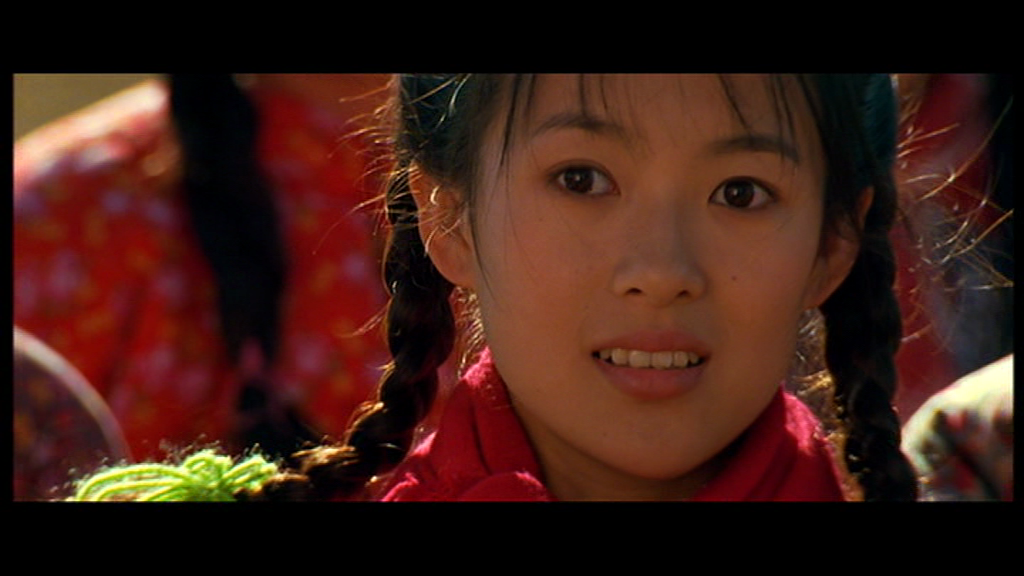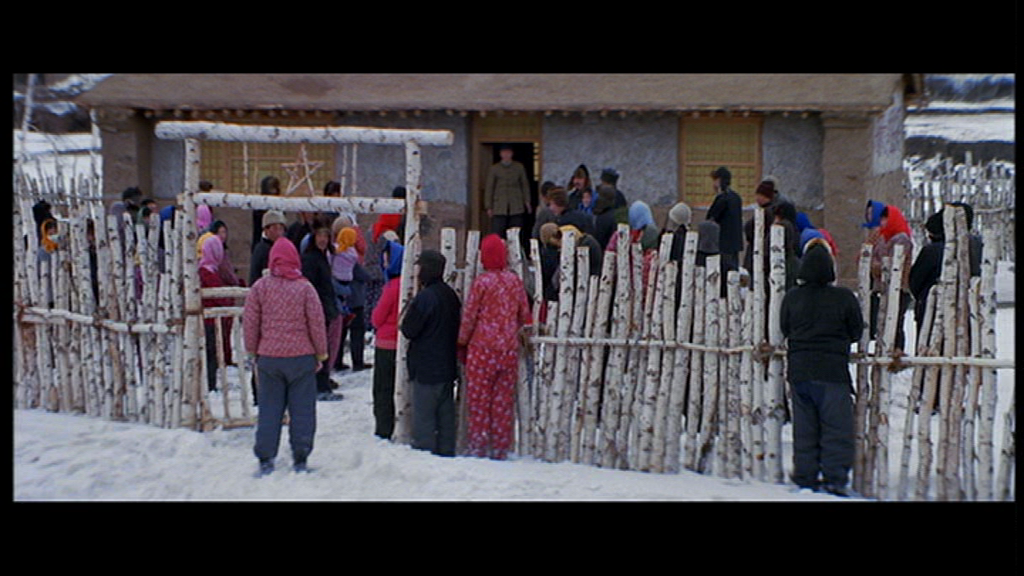Last Updated on October 2, 2020 by rob
An exquisitely crafted, emotionally overwhelming experience, The Road Home ranks for me as one of the all time great cinema love stories and one of my favourite Asian films. It really blew me away. The tale is simplicity itself being essentially the story of how an illiterate teenage girl named Di (Zhang Ziyi, astonishingly good from her facial expressions to her body language) falls in love with Luo (Honglei Sun), a young man sent from the city to teach the local kids in her poverty-stricken village in 1950’s China.
One of the things that is so impressive here is that this is a love story in which not only is little actually said between Di and Luo but neither character gets to even physically touch the other as cultural and political pressures contrive to keep them apart. Yet despite those obstacles The Road Home brilliantly evokes that sense of longing and pain of being separated from the one you love. It does so with a poetic realism that is stunning. It’s a world in which the simple gift of a hairpin can seem life changing and its loss equally so.
What we have then is a beautifully rendered courtship through spring, summer, autumn and winter. One reliant on the repetition of actions in specific locations (the road of the title) that ultimately turn out to link the past with the present in ways that are profoundly moving. Di’s first actual meeting – when Luo is walking his class home – is nothing more than an exchange of glances between the two yet it feels like the most joyous thing in the whole wide world. When, later on, Luo is summoned back to the city for some perceived infraction of the rules and fails to return on the date promised it is Di who nearly dies waiting on the road in a terrible snowstorm for the man who has captured her heart. Yet so persuasive is the attraction between these two that any other action on her part seems inconceivable to us.
With a stirring score and outdoors cinematography that captures the seasons with a vivid beauty Ymou’s film also comes through with its modern day framing device in which the couples son (Hao Zheng) arrives from the city, having received news of his father’s death, to comfort his mother and make the funeral arrangements. But he finds her obstinate in wanting her husband’s coffin hand-carried several miles along the main road to his grave. Given that this involves literally dozens of people, plus food, drink and a procession of vehicles in freezing temperatures the son understandably wonders how any of this can possibly occur in a town bereft of its young.
It’s here that Yimou pulls off his greatest coup in bringing back all those former pupils – the infant boys and girls that are a delightful yet background presence in the flashback that comprises the bulk of the film – who never forgot the man who came to teach them and married one of their own. And as they come marching down the road in a dreadful snowstorm, having travelled from all over, with people running from the back to push those at the front aside so they can have the honour of carrying Luo’s coffin it’s completely emotionally overwhelming. Family and communal love all fused into one with a powerful affirmation of the value of education to boot. If you didn’t already have tears streaming down your face you will when it gets to this bit.



